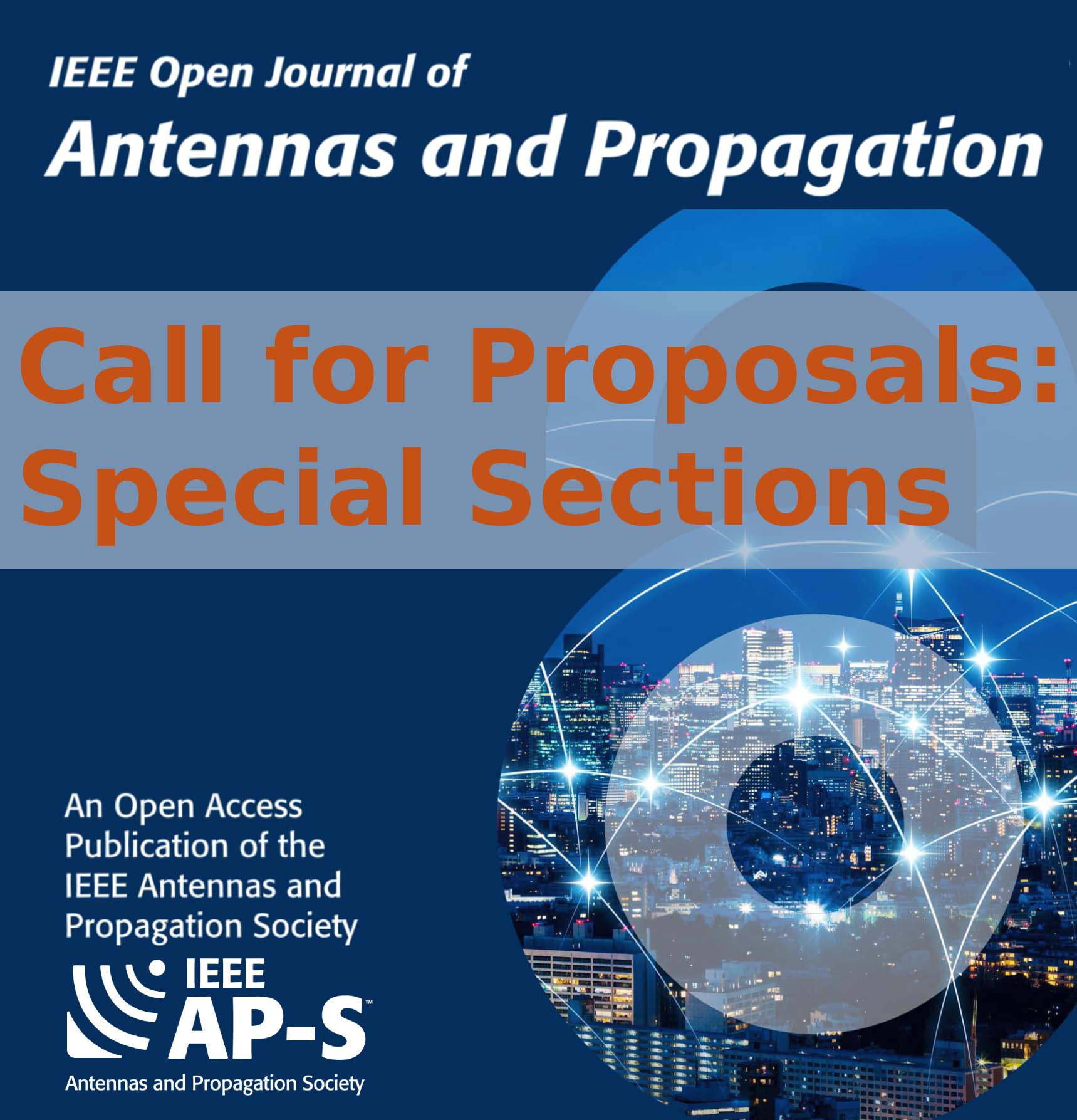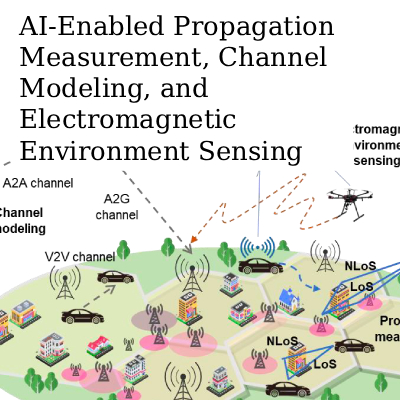Aims & Scope
The IEEE Open Journal of Antennas and Propagation covers antennas, including analysis, design, development, measurement, standards, and testing; radiation, propagation, and the interaction of electromagnetic waves with discrete and continuous media; and applications and systems pertinent to antennas, propagation, and sensing, such as applied optics, millimeter-and sub-millimeter-wave techniques, antenna signal processing and control, radio astronomy, and propagation and radiation aspects of terrestrial and space-based communication, including wireless, mobile, satellite, and telecommunications at all frequencies.
Open Access
This journal is 100% open access, which means that all content is freely available without charge to users or their institutions. All articles are published under Creative Commons licenses (either CCBY or CCBY-NC-ND), and the author retains copyright. Users are allowed to read, download, copy, distribute, print, search, or link to the full texts of the articles, or use them for any other lawful purpose, as long as proper attribution is given.
Open access is provided through the payment of an article processing charge (APC) paid after acceptance. APCs are often financed by an author's institution or the funder supporting their research.
The articles in this journal are peer reviewed in accordance with the requirements set forth in the IEEE PSPB Operations Manual (sections 8.2.1.C & 8.2.2.A). Each published article was reviewed by a minimum of two independent reviewers using a single-anonymous peer review process, where the identities of the reviewers are not known to the authors, but the reviewers know the identities of the authors. Articles will be screened for plagiarism before acceptance.
Corresponding authors from low income countries are eligible for waived or reduced APCs.
Ethics
All IEEE authors are expected to adhere to IEEE's publishing ethics, including the definition of authorship, the appropriate citation of sources, the accurate reporting of data, and the publishing of original research. Visit the IEEE Author Center to learn more. All articles submitted for publication should be original and not under consideration elsewhere; if your article is based on a previous publication such as a conference proceeding, cite the original publication and clearly indicate how the articles differ. Contact the Editor-in-Chief with any questions on publishing ethics.
Article Submission
- Each article submitted to IEEE OJAP should be original writing about state of the art research, emerging areas and future directions on developing fields in all aspects of the AP-S. In addition to technical research results, high quality submissions of a tutorial or overview nature are welcome. If you consider submitting a topical review or overview article, please contact the Editor-in-Chief Prof Zhongxiang Shen (
This email address is being protected from spambots. You need JavaScript enabled to view it. ) prior to submission. - In order to make your article discoverable, please consult our guide on Search Engine Optimisation.
- All articles must be submitted on our IEEE Author Portal.
- Format your article for submission by using the article template, located in the IEEE Author Center. [Word dowload and LaTeX dowload versions are available.] Submit your article text in PDF format.
- Submit your article text in PDF format. Visit the IEEE Author Center for information on writing the abstract, using equations in your article, publishing author names in native languages, and more.
- Submit your figures individually in PS, EPS, PDF, PNG, or TIF format. Visit the IEEE Author Center for information on resolution, size requirements, file naming conventions, and more.
- For information on submitting supplementary material such as graphical abstracts, multimedia, or datasets, visit the IEEE Author Center.
ORCID
All IEEE journals require an Open Researcher and Contributor ID (ORCID) for all authors. ORCID is a persistent unique identifier for researchers and functions similarly to an article's Digital Object Identifier (DOI). You will need a registered ORCID to submit an article or review a proof in this journal. Learn more about ORCID and sign up for an ORCID today.
English Language Editing Services
English language editing services can help refine the language of your article and reduce the risk of rejection without review. IEEE authors are eligible for discounts at several language editing services; visit the IEEE Author Center to learn more. Please note these services are fee-based and do not guarantee acceptance.
Share Your Code and Data
Increase the impact of your work by sharing your code and data for others to view, build upon, and reuse. IEEE works with Code Ocean, a cloud-based computational reproducibility platform, to make your code discoverable. IEEE DataPort, an online data repository of datasets and data analysis tools, makes your datasets discoverable. Visit the IEEE Author Center for more information.
IEEE Author Tools
Preparing your article for submission is easy with IEEE Author Tools. Tools are available to help you find the right publication for your research, check the quality of your graphics, validate your LaTeX files, and verify your reference list.
Resubmission Policy
If a manuscript receives a "Reject and Resubmit" decision, the resubmitted version will be subject to a final evaluation and may receive only one of the following decisions:
- Accept
- Minor Revision
- Reject
If the resubmitted manuscript is rejected, it will be considered as having been rejected twice. In such cases, no further resubmissions of the same manuscript will be considered by the journal.
Article Processing Charges
The Article Processing Charge (APC) for papers submitted in 2025 is USD $2075 per article, plus applicable local taxes. The APC for papers submitted in 2026 is USD $2160 per article, plus applicable local taxes. IEEE members and Antennas and Propagation Society (AP-S) members receive 5% and 20% discounts, respectively. These discounts cannot be combined and do not apply to undergraduate and graduate students.
Information about IEEE's Low and Lower-middle Income Country Program is available here Some institutions offer assistance for open access funding. Check our institutional partners list to see if yours is one.
Post-Acceptance
If your article is accepted for publication, you will receive emailed instructions regarding your next steps. You may be asked to upload final production-ready files. Shortly after final files are uploaded, you will receive your article proofs for final review, along with instructions on how to review your proofs and submit any corrections. Please note that major changes to your article, including the list of references, are not permitted after the article is accepted for publication. Please contact the Editor-in-Chief if you have any doubts about whether a modification you wish to make is appropriate.
A roadmap has been prepared in order to guide you towards maximizing the impact of your published research. You are encouraged to follow all of the steps in order to ensure that your work gets seen, read, and cited.













